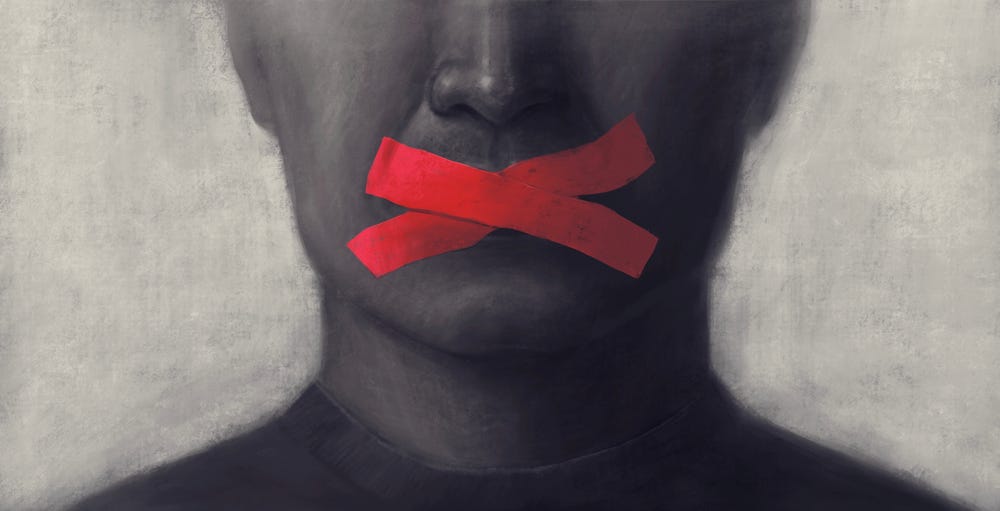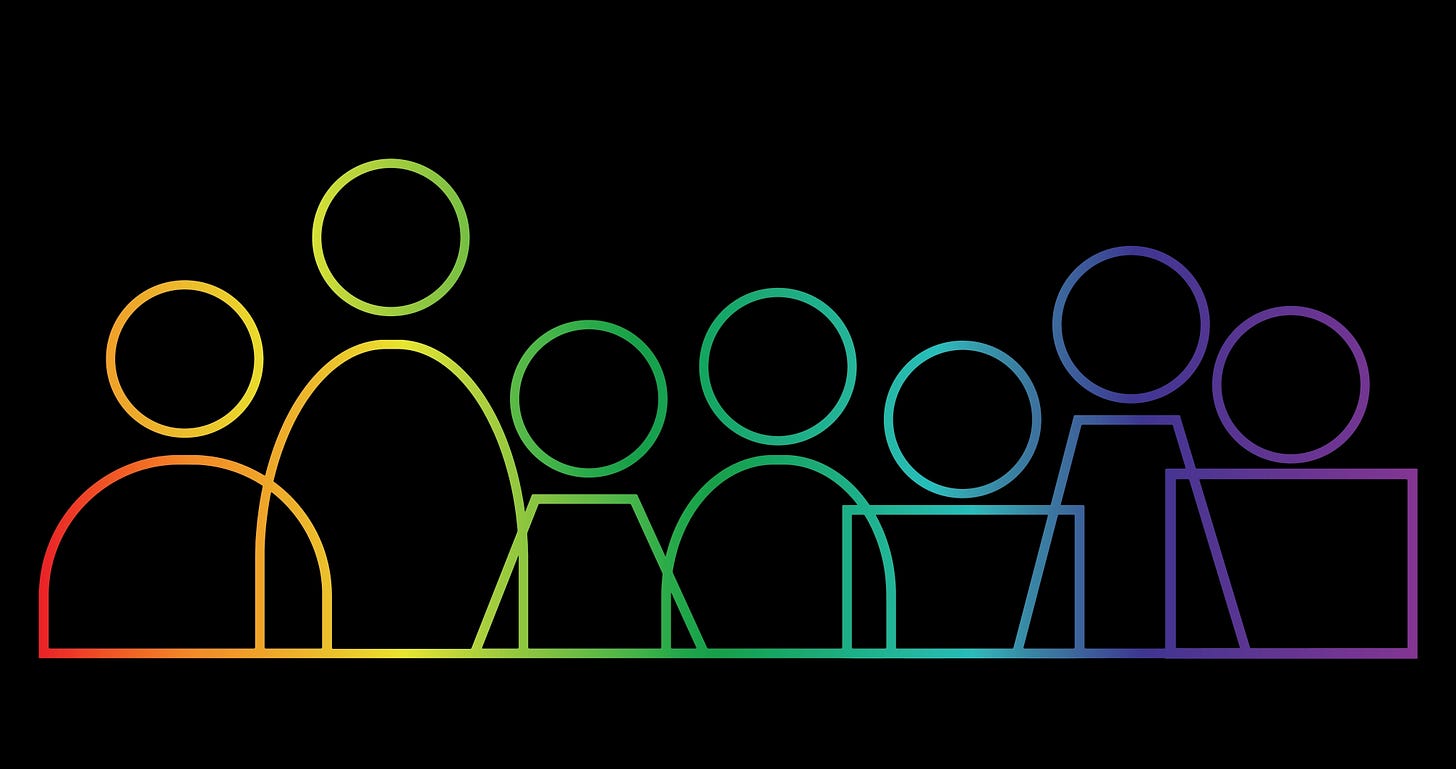E-Pluribus | March 20, 2023
No more consensus on free speech in the U.S., why defining woke is frivolous, and DEI tyranny.
A round-up of the latest and best writing and musings on the rise of illiberalism in the public discourse:
Steven Greenhut: America's Losing Its Free Speech Consensus
In mid-century America, the Left was often viewed as free speech champions, as we chronicle in our Historically Speaking series. Then, as things like political correctness emerged, the Right began to speak about the virtues of free expression. But as Steven Greenhut writes at the Orange County Register, it’s now becoming harder and harder to find free speech champions on either side.
Frustrated at perceived bias within social-media companies, many Republicans have championed government interventions ranging from turning those private firms into regulated monopolies to removing their protections from defamation lawsuits. They claim these proposals will promote free speech—but they ultimately make government regulators the arbiter of speech, or eliminate the rights of private companies to set up their own moderating and publishing rules.
Progressives mostly have used their social power—and arm-twisting from friendly federal regulators—to censor so-called COVID misinformation and cancel the social-media accounts of many conservatives. They also gladly use the legislative process to limit private speech-related decisions.
For instance, the U.S. Supreme Court struck down—on First Amendment grounds—California's law forcing crisis-pregnancy centers to provide abortion information even though they exist to provide alternatives to abortion. A new bill uses false-advertising laws to achieve the same goal. "We are outlawing misinformation," California state Rep. Rebecca Bauer-Kahan (D–Orinda), recently told The Sacramento Bee. Whatever one's views on abortion, we should agree it is not government's place to police the "truth."
Free-speech attacks stem from the nation's culture wars, by which warring factions seek to own the other side rather than uphold a neutral legal and political order. One prominent conservative law professor, Adrian Vermeule of Harvard, even argues we should reject "the libertarian assumptions central to free-speech law and free-speech ideology—that government is forbidden to judge the quality and moral worth of public speech."
Read the full piece.
Thomas Chatterton Williams: You Can’t Define Woke
At this point, the word “woke” has been used, especially by the Right, as a pejorative to describe almost anything that conservatives don’t like. At The Atlantic, Thomas Chatterton Williams argues that attempts to define the word “woke” are a pointless exercise and that we should rely on more precise language when talking about illiberal trends.
This messiness is why I have argued for years now that “woke” is not a viable descriptor for anyone who is critical of the many serious excesses of the left yet remains invested in reaching beyond their own echo chamber. The word is more confusing than useful, and we should make good-faith efforts to avoid using it. As I wrote in The Guardian in November 2021: “Fairly or not, ‘woke’ and ‘wokeness’ now overwhelmingly signal that you’re not fundamentally interested in that rhetorical labor, and those who need the most convincing give themselves permission to stop paying attention.”
When I shared this line of thought on Twitter, many of my most thoughtful centrist and conservative followers found it frustrating. A common critique boiled down to this: They were exasperated that just as the word had gained traction in the public imagination—becoming a useful tool to expose and stigmatize an activist idealism that they believe is illiberal and punitive in practice—moderates such as myself were wringing our hands and trying to take that tool away from them.
In the year or so since I made that case, the pejorative has gone international, as I wrote in this magazine recently. Yet I remain convinced that one should never rely on language one cannot hope to control or even fully explain. An important further complication to this debate is that as the word woke migrated from Black American slang to common usage, the critics of the social-justice ideologues the term denotes came to rely on their own esoteric jargon. Now they can barely communicate what, precisely, they find problematic about “wokeness” and wish to correct. Hence, they end up using this word as an epithet to refer—vaguely—to seemingly anything changing in the culture that they don’t like. That is the critique they open themselves up to, in any event.
Read it all.
Wall Street Journal Editorial Board: The Tyranny of the DEI Bureaucracy
The Stanford free speech mess has dominated much of the discussion around the excesses of campus censorship and related issues. The Wall Street Journal editorial board weighs in on the issue and looks at the larger picture of what this tells us about the problems with the growing Diversity, Equity, and Inclusion bureaucracy taking over college campuses, companies, and government agencies around the country.
The Stanford blowup shows how the culture of DEI, and especially its accumulation of power in the bureaucracy, has become a threat to free speech. Students who gather to jeer disfavored speakers and intimidate and harass fellow students use the authority of DEI offices to sanction their behavior. Rather than promoting diversity, DEI officers enforce ideological conformity.
Jay Greene of the Heritage Foundation reports that the average major university now has 45 DEI personnel. The University of Michigan has 163 DEI officers. Ohio State and the University of Virginia each have 94. Georgia Tech has 41 DEI personnel but only 13 history professors.
[ . . . ]
The DEI movement may have started with good intentions, but across government, education and American business its functionaries have too often become ideological enforcers.
DEI officials have a vested interest in ensuring that the grievances of identity politics continue lest the offices have no reason to exist. As the Stanford experience shows, they promote racial division rather than redress it, and institutions need to rethink their value.
Read the full piece.
Around Twitter
Robert Tracinski interviews David French on campus free speech:
A scholar at Palm Beach Atlantic University has been accused of indoctrinating students:
Florida goes after a theater that hosted a drag show despite undercover agents finding nothing lewd about it:










